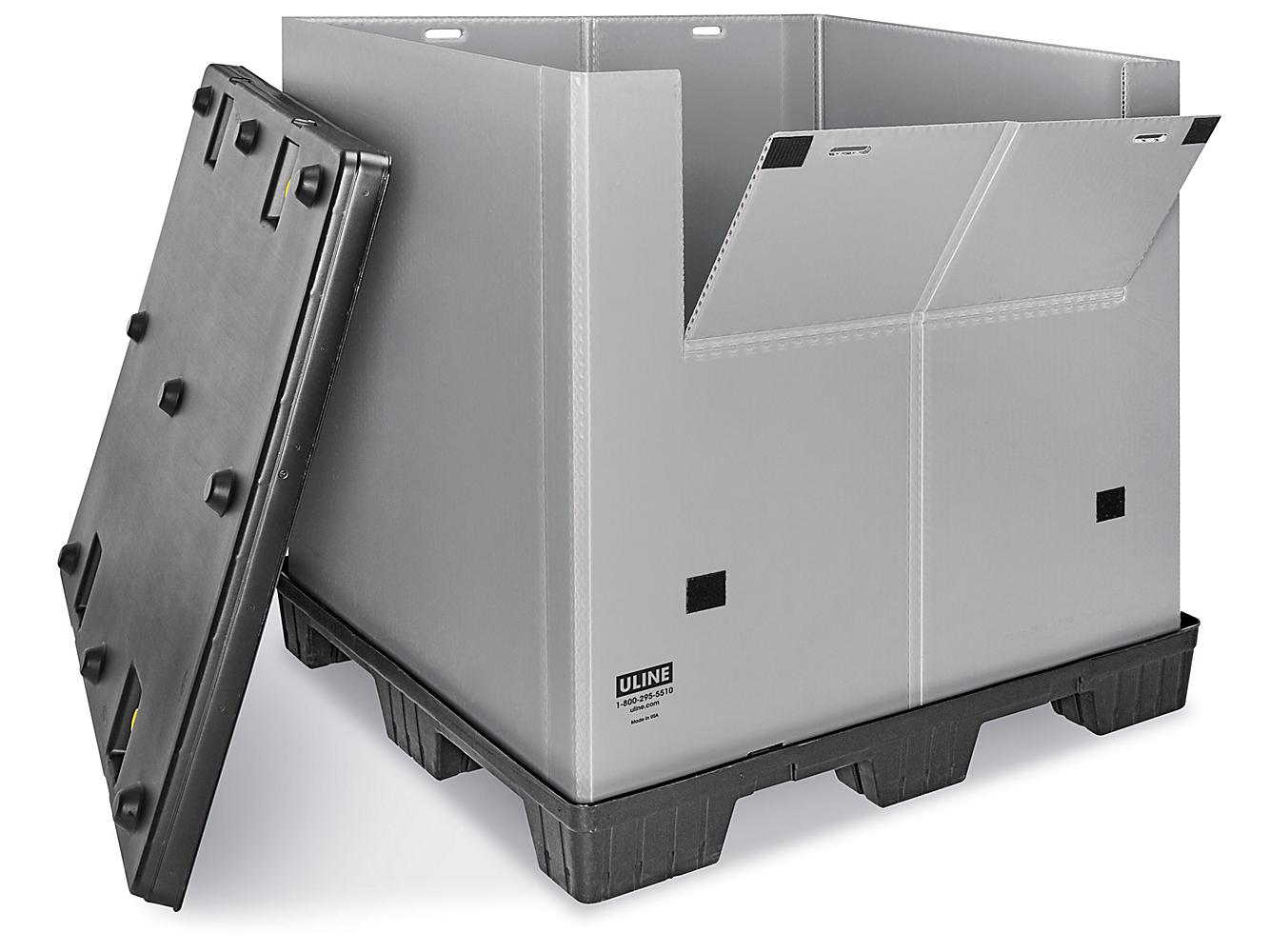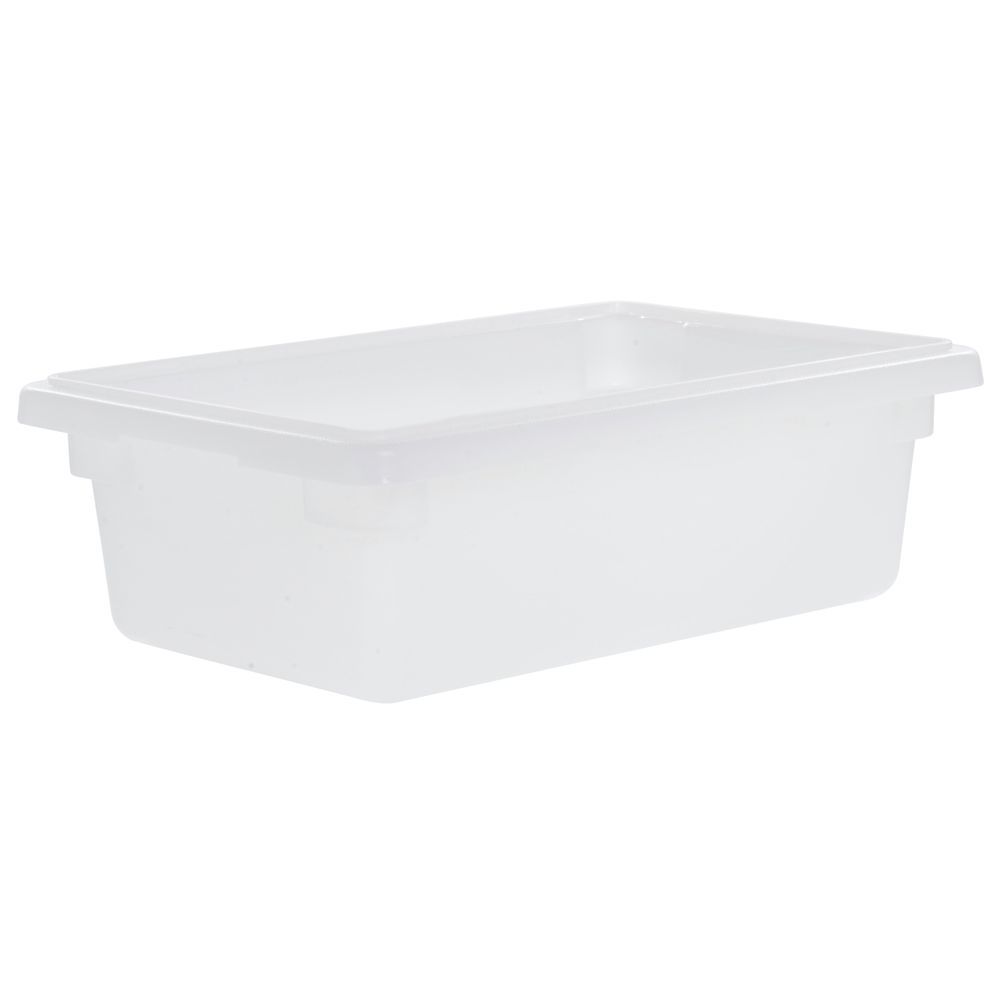A simple guide to handling and storing items with plastic bulk containers
Wiki Article
A Comprehensive Guide to the Different Sorts Of Bulk Plastic Containers Available Today
Mass plastic containers play a crucial duty in various industries, supplying options for storage space and transport. Their varied kinds cater to various needs, from stiff options for strong products to flexible containers accommodating various shapes. Each type offers distinct benefits, making it necessary to recognize their applications and attributes. As markets evolve, so do the demands for reliable container solutions. What factors should one think about when selecting the best mass container?Summary of Bulk Plastic Containers

Kinds of Mass Plastic Containers
Bulk plastic containers been available in numerous forms, each fit to details applications. Rigid mass containers, flexible mass containers, and intermediate mass containers stand for the key groups, each offering unique advantages. Recognizing these kinds is essential for selecting the appropriate container for transferring and keeping materials.
Stiff Bulk Containers
Inflexible bulk containers are critical for reliable storage space and transport of numerous products throughout industries. These containers are generally built from long lasting plastics, allowing them to stand up to extreme handling and ecological conditions. They come in various forms and sizes, consisting of totes, drums, and bins, making them ideal for storing whatever from granular materials to liquids. Inflexible containers frequently include enhanced walls and secure covers, making certain the components continue to be shielded throughout transportation. Their stackable style optimizes storage area, making them excellent for storehouses and producing facilities. Furthermore, several stiff mass containers are recyclable and recyclable, contributing to sustainability efforts. Generally, their robustness and versatility make stiff mass containers a vital part in supply chain operations.Adaptable Bulk Containers
Versatile bulk containers, usually referred to as adaptable intermediate bulk containers (FIBCs), function as a functional option for transporting and storing a range of dry materials. These containers are generally made from woven polypropylene and are designed to be light-weight yet solid, allowing for effective handling and piling. Their adaptability enables them to accommodate various sizes and shapes, making them suitable for items ranging from grains to chemicals. FIBCs can be outfitted with attributes such as spouts for simple filling and discharge, in addition to safety coatings for enhanced durability. Furthermore, they are recyclable and reusable, adding to sustainable methods in markets such as agriculture, food processing, and building. On the whole, versatile bulk containers use a economical and efficient option for mass product administration.Intermediate Mass Containers
Intermediate bulk containers (IBCs) are vital for the effective transport and storage of fluids and granular materials throughout different industries. These containers normally have an ability ranging from 275 to 330 gallons and are developed for simple dealing with and stacking. Made from sturdy materials like high-density polyethylene or steel, IBCs give superb defense versus contamination and ecological elements. Their design includes features such as an integrated pallet for forklift accessibility and a removable top for very easy dental filling and cleaning. IBCs are commonly made use of in chemical, food, and pharmaceutical sectors, guaranteeing conformity with safety and security guidelines. Their adaptability and reusability make them a cost-effective remedy for bulk storage space and transportation, adding to provide chain effectiveness and sustainability.Functions and Advantages of Bulk Plastic Containers
Mass plastic containers are essential devices in different industries, using a combination of longevity and functionality. These containers are created from high-grade materials, making them resistant to influences, chemicals, and ecological elements. This toughness guarantees product security throughout storage and transport.Furthermore, mass plastic containers are light-weight, promoting convenience of minimizing and taking care of shipping costs. Their stackable style maximizes storage performance, allowing for maximized storage facility space. Numerous designs feature secure covers or closures, offering an impermeable seal that prevents and protects components contamination.
Bulk plastic containers are usually reusable and recyclable, contributing to lasting techniques. Their versatility permits a vast array of applications, from food storage to industrial use, improving their worth across industries. Businesses benefit from the long life-span and low upkeep needs of these containers, making them a cost-efficient remedy for both long-lasting and short-term demands.
Industries That Utilize Mass Plastic Containers
Different sectors benefit from making use of bulk plastic containers, each leveraging their one-of-a-kind properties for certain applications. The food and drink sector depends on these containers for safe storage space and transportation of products, while the chemical production market uses them for dealing with unsafe products. Additionally, the pharmaceutical distribution requires emphasize the relevance of toughness and tidiness in product packaging services.Food and Beverage Market
As the need for risk-free and efficient storage space services continues to increase, the food and beverage market increasingly relies upon mass plastic containers for their functional needs. These containers provide durable, light-weight, and versatile alternatives for saving components, ended up products, and waste products. Made from food-grade materials, they assure compliance with health and safety standards. Different designs, such as stackable containers and tote boxes, maximize area during transport and storage space, improving logistical efficiency. Furthermore, the openness of some mass containers permits very easy supply monitoring, lowering the risk of perishing. With the industry's focus on sustainability, many makers are currently providing recyclable and recyclable choices, straightening with environmentally friendly practices while satisfying the high demands of food safety and security and hygiene.
Chemical Production Market
The chemical production sector depends greatly on mass plastic containers for the efficient and safe storage space of raw materials, intermediates, and finished products. These containers are developed to hold up against different chemicals, guaranteeing that unsafe materials do not leak or degrade the container itself. Typical kinds include high-density polyethylene (HDPE) and polypropylene containers, which offer outstanding chemical resistance and resilience. Their light-weight nature and stackable design help with transport and storage, optimizing area in producing centers. Furthermore, many mass plastic containers include features such as tamper-evident seals and easy-to-read labeling, enhancing security and compliance with market laws. In general, mass plastic containers are essential to the chemical production procedure, giving trustworthy solutions for managing diverse materials.Drug Distribution Needs
Pharmaceutical distribution counts on mass plastic containers to satisfy strict safety and security and governing requirements. These containers are important for storing a range and delivering of pharmaceutical items, consisting of active pharmaceutical components (APIs) and completed medicines. Their style warranties defense against light, dampness, and contamination, maintaining the honesty of sensitive materials. Additionally, mass plastic containers are certified with industry standards such as Excellent Manufacturing Practices (GMP) and are usually made from materials that are FDA-approved. The usage of these containers improves efficiency in the supply chain, enabling safe, large-scale distribution while lessening waste. Firms in the pharmaceutical sector focus on using long lasting, watertight, and tamper-evident containers to assure item safety and top quality throughout the logistics process.Considerations for Picking the Right Container
When selecting the proper bulk plastic container, numerous factors need to be carefully considered to assure ideal capability and safety. The nature of the materials to be stored is paramount; compatibility with the container's material can influence integrity and security. bulk plastic containers for sale. Furthermore, the container's shapes and size must align with the storage space and transportation demands, guaranteeing efficient space useLots ability is another crucial factor to consider, as it needs to suit the weight of materials without risk of damage or failure. The style attributes, such as venting or covers, can influence functionality and accessibility. Conformity with sector policies is essential, especially in sectors like pharmaceuticals, where safety criteria are rigorous.
The expected life-span and sturdiness of the container should be evaluated to validate it meets the functional demands without frequent replacement. By examining these elements, one can select one of the most suitable mass plastic container for details applications.
Ecological Influence and Sustainability
As organizations increasingly focus on sustainability, the ecological effect of mass plastic containers has actually come under scrutiny. These containers, commonly made from products such as polyethylene or polypropylene, add greatly to plastic waste otherwise handled properly. Their manufacturing includes the usage of nonrenewable fuel sources, which can result in raised greenhouse gas discharges. However, innovations in recycling modern technology and the advancement of eco-friendly alternatives are helping to mitigate these issues.Furthermore, numerous producers are taking on techniques that highlight using recycled products, consequently decreasing the demand for virgin plastics. The longevity of bulk plastic containers additionally plays a duty; they are designed to be recycled multiple times, which can lessen their overall environmental impact when compared plastic bulk containers to single-use alternatives. Eventually, the market deals with the obstacle of balancing capability with eco-friendly responsibility, making sustainable methods important for the future of bulk plastic containers.
Finest Practices for Storage Space and Transport
Efficient storage and transportation of bulk plastic containers greatly affect both operational efficiency and sustainability. To optimize space, organizations ought to pile containers firmly, guaranteeing stability and avoiding damages. Appropriate labeling is important for easy recognition, which simplifies access procedures. In addition, maintaining a tidy and orderly storage space area minimizes the threat of contamination and improves safety and security.For transportation, choosing the best car is crucial; containers ought to be secured to stay clear of moving throughout transit. Business must likewise take into consideration making use of pallets to facilitate easier loading and dumping. Routine assessments of containers for damage can stop pricey replacements.
Temperature level control is an additional essential element, as extreme conditions can compromise the integrity of the plastic. Training personnel on ideal practices for dealing with and transportation assurances conformity and promotes a culture of security. By applying these ideal techniques, companies can improve their functional efficiency while adding to environmental sustainability.
Regularly Asked Inquiries
Just how Do I Clean Mass Plastic Containers Properly?
To tidy bulk plastic containers efficiently, one need to rinse them with cozy water, use a mild cleaning agent and scrub with a soft brush. Rinse extensively, then permit to air dry entirely prior to storage space or reuse.What Is the Life Expectancy of Mass Plastic Containers?
The life expectancy of mass plastic containers usually varies from 5 to one decade, depending upon the product, usage, and environmental problems. Appropriate maintenance and storage space can considerably expand their functionality and sturdiness gradually.Can Bulk Plastic Containers Be Customized?

Do Mass Plastic Containers Have Guarantee Options?

Exist Laws for Making Use Of Mass Plastic Containers?
Yes, guidelines exist for utilizing bulk plastic containers, mostly concentrated on safety and security, environmental impact, and material compliance. These guidelines guarantee that containers satisfy sector requirements and appropriate for transporting various substances securely and effectively.Inflexible mass containers, flexible mass containers, and intermediate bulk containers represent the primary categories, each offering special advantages. Versatile mass containers, typically referred to as flexible intermediate bulk containers (FIBCs), serve as a versatile service for transporting and storing a variety of dry materials. The chemical production field counts heavily on bulk plastic containers for the reliable and risk-free storage of raw materials, intermediates, and finished items. bulk plastic containers for sale. These containers are designed to withstand numerous chemicals, making certain that harmful materials do not leak or weaken the container itself. Furthermore, bulk plastic containers are certified with industry criteria such as Great Manufacturing Practices (GMP) and are usually made from products that are FDA-approved
Report this wiki page